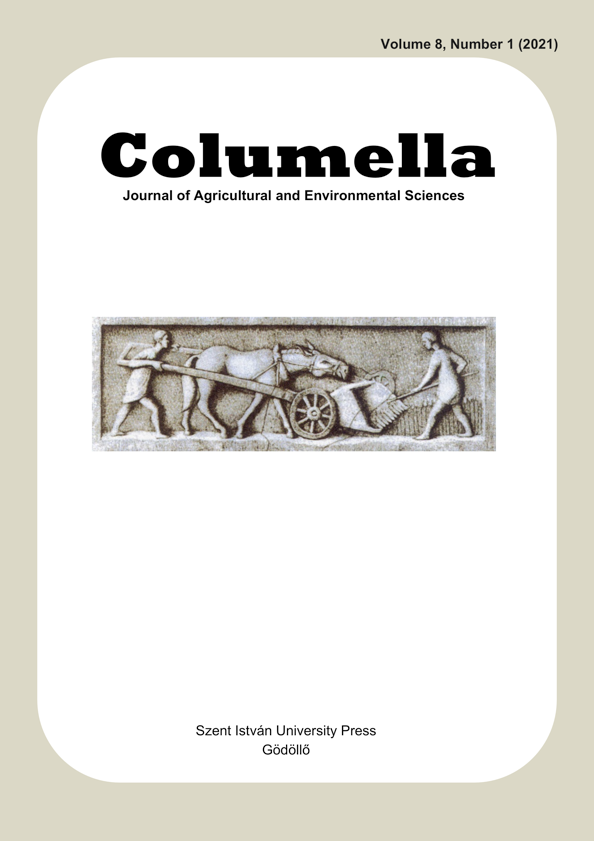Comparative study of flowering phenology of selected plant life forms in urban and rural environments. Preliminary results
DOI:
https://doi.org/10.18380/SZIE.COLUM.2021.8.1.25Keywords:
Reproductive phenology, plant life forms, climate change, heat island, botanical gardenAbstract
Global climate change has unforeseeable ramifications for the ecosystem of our home planet. In Europe, more than half of the vascular plant flora may become endangered by the year 2080 as a result of climatic changes. Urban climate conditions are considered similar to the changing global climate conditions. The concept of our study is based on the Space for Time Substitution method, utilizing its advantage of saving time and resources compared to long-term monitoring. To find out how excess heat in urban environments affects the phenological flowering patterns of species we planted specimens representing 6 different life-forms of the Raunkiær system (phanerophytes, chamaephytes, hemicryptophytes, geophytes, hemitherophytes, therophytes). Each category was represented by at least 5 species and each species by 5-5 specimens in Budapest, Füvészkert and in the MATE Botanical Garden of Gödöllő. All the species in the experiment averaged at 7.62 days earlier flowering onset in Budapest. The peak of the flowering had 12.94 days of difference, while the end of flowering had 2.9 days of difference, with the earlier being Budapest. There is a strong significant difference (P < 0.001) in the onset of the flowering of Globularia cordifolia between the locations, regarding the peaks of flowering there is a strong significance (P < 0.001) for Inula ensifolia, regarding the end of flowering there is a strong significance (P < 0.001) for Polygonatum multiflorum. To clarify other driving forces and the role of abiotic parameters in the flowering phenology patterns, further study is required.
Downloads
Published
Issue
Section
License
Copyright (c) 2021 Krisztina Verbényiné Neumann, Szilárd Czóbel

This work is licensed under a Creative Commons Attribution-NonCommercial-NoDerivatives 4.0 International License.










